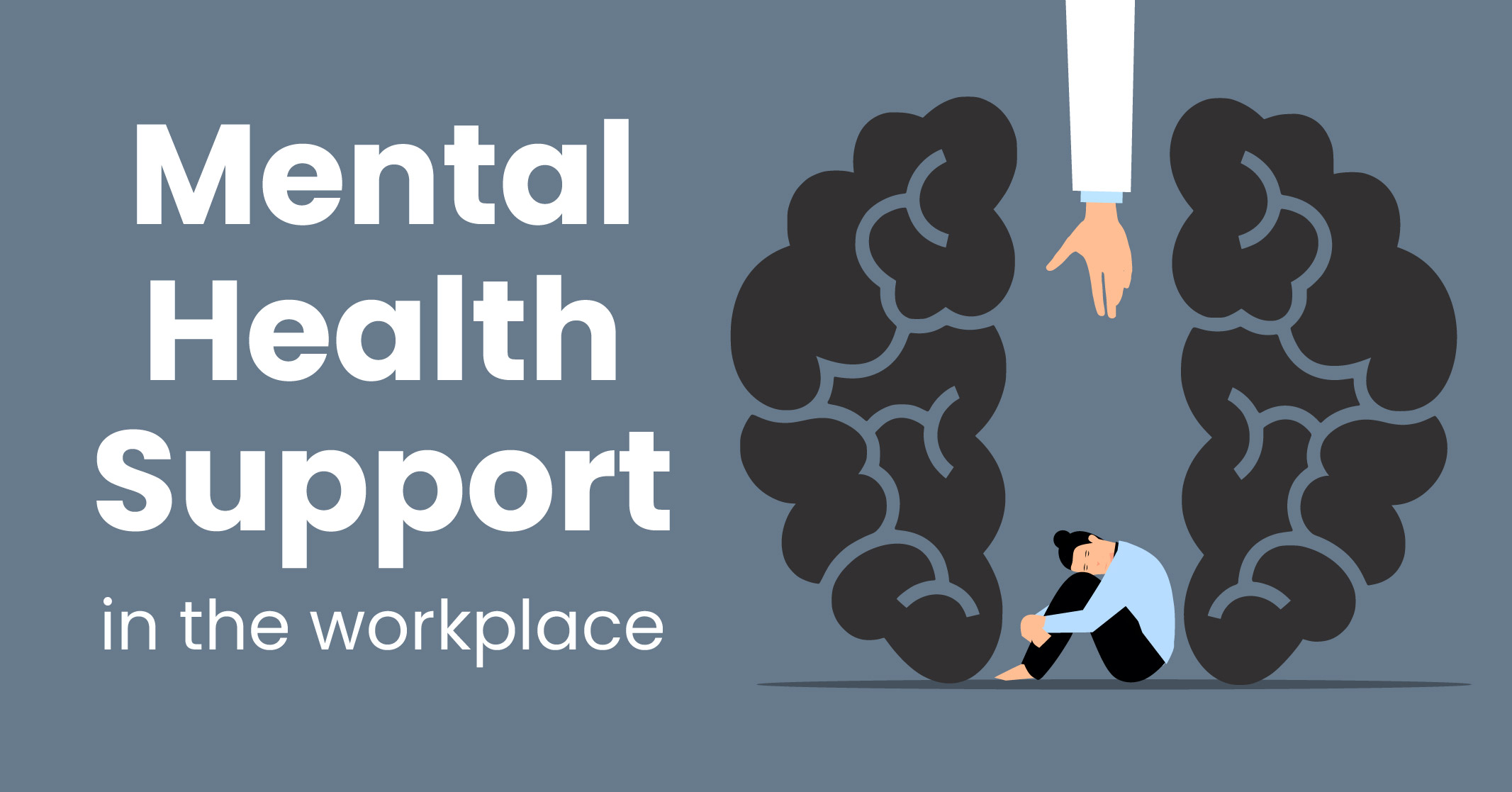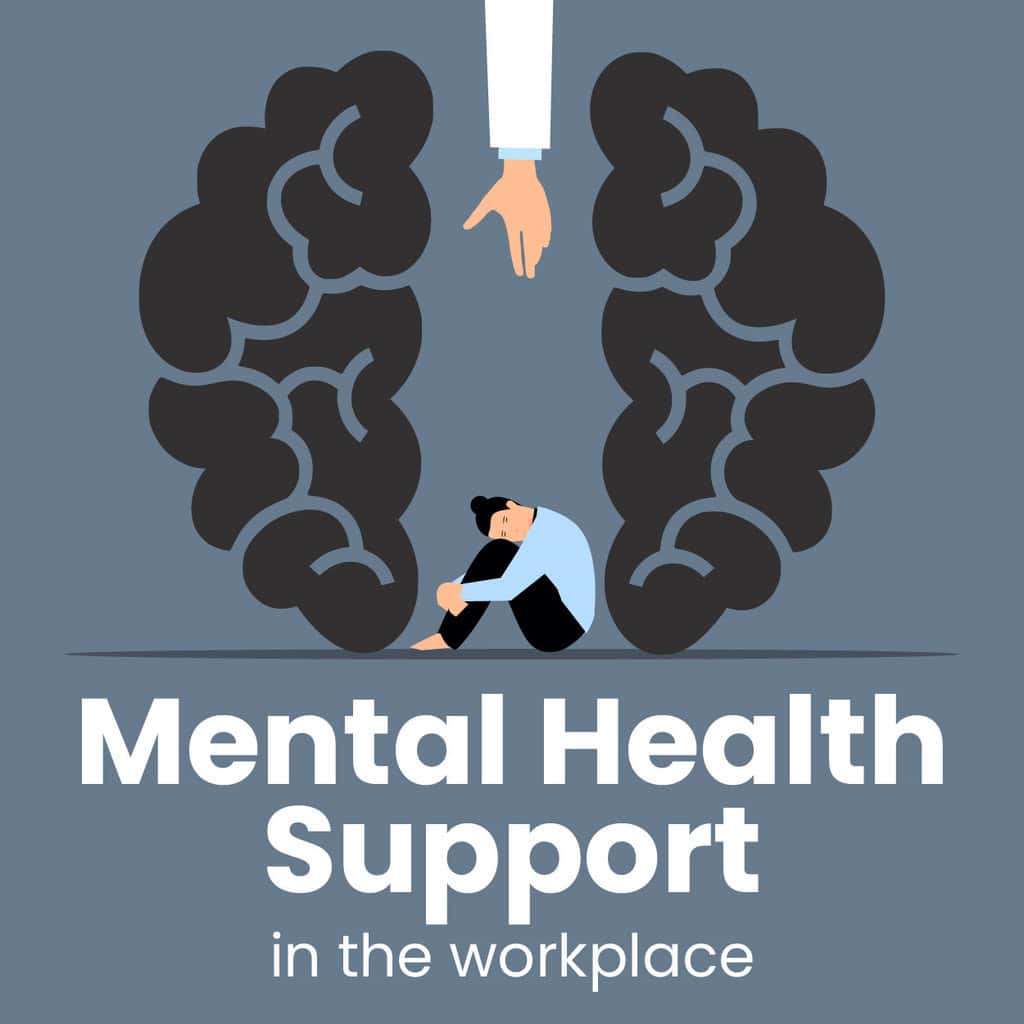
The Importance of Mental Health Support in Workplace Safety
In the pursuit of a safe and healthy workplace, organizations must acknowledge that mental health is an integral component of an employee’s overall well-being. The connection between mental health and workplace safety is profound, impacting productivity, employee satisfaction, and the prevention of accidents. Proper employer sponsored mental health support plays a big role in ensuring a safe work environment. Acknowledging and participating in Mental Health Awareness month, is an important safety culture that plays a crucial role in supporting mental health in the workplace.
Reducing Stress and Enhancing Focus
Chronic stress can impair cognitive function and decision-making, increasing the likelihood of accidents. Providing mental health support helps employees manage stress, enhancing their ability to stay focused and make sound judgments, ultimately contributing to a safer workplace.
Preventing Burnout
Burnout is a significant risk factor for workplace accidents. When employees are mentally and emotionally exhausted, their alertness decreases, and they can become more prone to errors. Prioritizing mental health helps prevent burnout, maintaining a workforce that is attentive and capable of performing tasks safely.
Cultivating a Culture of Support
A workplace that values mental health creates a culture of support. When employees feel comfortable discussing mental health concerns, they are more likely to seek help when needed, reducing the stigma associated with mental health issues and promoting a safer and more inclusive environment.
The History of Mental Health Awareness Month
May holds special significance in mental health and is designated as Mental Health Awareness Month. Mental Health Awareness Month traces its roots back to 1949 when Mental Health America (MHA) initiated the observance. Originally a week-long event, it expanded to a month in 1951. The goal was to raise awareness about mental health issues and reduce the stigma surrounding mental illnesses.
Over the years, Mental Health Awareness Month has evolved into a global movement. Throughout May, organizations, communities, and individuals engage in activities to educate the public, advocate for mental health policies, and break down stereotypes associated with mental illnesses. The month of May serves as a platform to encourage open conversations about mental health. By breaking the silence and sharing personal stories, the month aims to create a supportive environment that fosters understanding, empathy, and compassion for those experiencing mental health challenges.
Things You as an Employer Can Do to Support Your Employees’ Mental Health
Employers play a pivotal role in creating a workplace that prioritizes mental health. Here are actionable steps you as an employer can take to support the mental well-being of your employees.
- Implement Employee Assistance Programs (EAPs): EAPs provide confidential counseling and support services to employees facing personal or work-related challenges. Offering access to EAPs demonstrates a commitment to employees’ mental health.
- Promote Work-Life Balance: Encourage a healthy work-life balance by setting realistic expectations for working hours, providing flexible scheduling options, and discouraging a culture of overwork. A balanced life contributes to improved mental health.
- Raise Mental Health Awareness: Conduct mental health awareness workshops, seminars, or training sessions to educate employees about common mental health issues, reduce stigma, and promote a company culture of understanding and empathy.
- Create a Supportive Environment: Foster an inclusive and supportive workplace culture where employees feel comfortable discussing mental health concerns. This could include implementing anti-stigma campaigns and providing resources for mental health support.
- Offer Mental Health Days and Resources: Recognize the importance of mental health by offering mental health days, providing resources like counseling services, and ensuring that employees are aware of available mental health support options.
Prioritizing mental health in the workplace is not only a moral imperative but also a strategic investment in safety, productivity, and employee satisfaction. By understanding the importance of mental health support, acknowledging the history of Mental Health Awareness Month, and taking proactive steps as an employer, you can contribute to a workplace that values and prioritizes the mental well-being of every team member.









